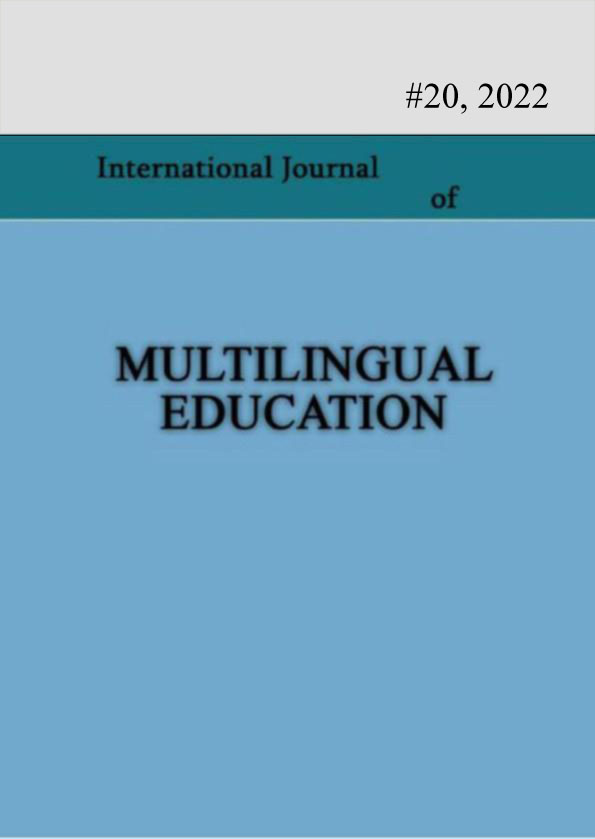A Psycholinguistic Study of Codeswitching: Data from Burundian Multilingual Adult Speakers
Keywords:
codeswitching, adult multilingual speakers, psycholinguistic study, language competence, multilingual educationAbstract
Codeswitching (CS) is an unavoidable linguistic phenomenon amongst multilingual speakers. Whereas CS has mainly been studied in a sociolinguistic and structural perspective, this article has studied this phenomenon in a psycholinguistic perspective based on the tenets of Competition Model (MacWhinney, B., 1982, 1987). The aim of the study was to analyse how patterns of codeswitching can illustrate the level of language competence among adult speakers. Participants were Burundian educated adult multilingual speakers using both Kirundi (L1), French (chronological L2) and English as languages learned in the multilingual education system of Burundi. Some of the speakers could use Swahili, a language learned outside the formal education (Swahili was not in formal education during the schooling time of the participants in this study). Data was collected through a semi structured interview which was recorded (45minutes for each interview) and later transcribed for analysis. This study was designed as a unilingual mode of language production. The results show that less competent speakers either produced a great amount of ‘intruders’ into the language being used (English) and the lowest level of competence was marked by a shift of mode i.e. a complete change of code being used. None of the participants has been able to keep the unilingual/monolingual mode that they were required to operate in. What has been termed as ‘fluent’ codeswitching in natural language production designs is seen as a sign of incapability to keep the mode, therefore a sign of only middle level of language competence as far as the use of the known languages is concerned. Generally, in this study, we argue that codeswitching patterns among more competent speakers are built on single words or short phrases from a different language, middle language competence codeswitches were based on a navigation into different languages whereas lower competence was based on a complete shift of language (code) whereby the speakers changed the language they were supposed to use to a different language.
Downloads
Published
How to Cite
Issue
Section
License

This work is licensed under a Creative Commons Attribution-ShareAlike 4.0 International License.

